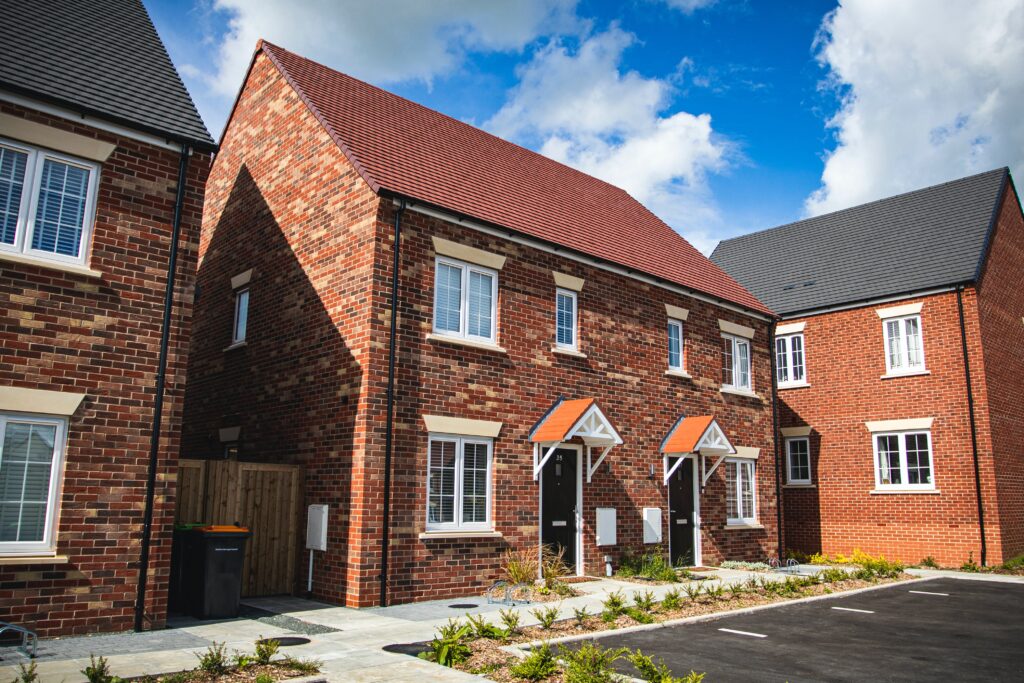
When buying a property, you’re faced with a whole range of fees and a homebuyer’s survey may seem like just another expense. In this article, our RICS chartered surveyor explains why a homebuyer’s survey is worth it when buying a house, and talks you through the different types of house surveys available to ensure you choose the right one for your needs.
So, is it worth getting a homebuyer’s survey? Homebuyers surveys and other types of house surveys are 100% worth it when purchasing a property as they highlight current and potential problems that you may encounter with the property. This can save both time and money further down the road. Alternatively, house surveys can help buyers to prioritise repairs when purchasing a fixer-upper.
Read on to learn more about homebuyer’s surveys, including the different types available and how much they cost.
Are House Surveys Worth it?
House surveys are 100% worth the investment when buying a property, however, to get the most out of a survey, you must select the right one for your needs. The right survey could save you a great deal of time and money down the road; they highlight any current problems and any potential problems that may occur at a later date.
Not all house surveys hold the same level of value for each and every homebuyer. For some, a simple homebuyer survey will suffice, provided that the property is relatively new and free of major damages. For older homes or those that have obvious damage, a building survey or a defect analysis survey may be more useful.
For tenants and landlords, stock condition surveys and schedules of dilapidations may be useful additional surveys once a property has been purchased. These surveys allow tenants and landlords to stay on top of the condition of a property throughout its lifetime, not just at the purchase stage.
Different Types of House Surveys – Which Do You Need?
Below you’ll find more information about each type of house buyers survey, the situations in which they’re commonly used, their benefits and more to help you make an informed decision about which house buyers survey you need and if they are, indeed, worth it for your circumstances.
Homebuyer Survey
Homebuyer surveys are typically used to assess a property, both internally and externally. There is usually a particular focus on the property beyond what can be seen physically, such as hidden defects, decay, and dampness. Further to this, a homebuyer survey will typically look at ceilings, roofs, walls, bathrooms, and kitchens, as well as any permanent outdoor structures and features, such as outbuildings, roofing, pipes and guttering.
Money spent on a homebuyer survey can save you a fortune in the future and help you avoid expensive surprises after you have moved in.
Homebuyer surveys are most useful for properties that have been built of standard construction within the last 50 years that don’t show signs of major faults. Choose between:
- RICS Condition Report
- RICS Homebuyer Report
- New-Build Snagging Survey
Building Survey
Building surveys are similar to homebuyer surveys but are more tailored towards older buildings or those that show obvious signs of defects. This report is more comprehensive than a homebuyer’s survey and provides detailed advice on repairs.
Typically, building surveys cost more than a homebuyer’s survey but they are worth the investment if you’re considering buying an older home, a fixer-upper, or if you noticed signs of defects during a viewing.
Defect Analysis Survey
If you’ve noticed a specific fault or defect in the property you’re buying, a defect analysis survey can help you to determine the extent of the fault, the cause of the fault, whether or not it is likely to get worse over time, and recommendations for repair. Defect analysis surveys can assess:
- Dampness
- Structural issues
- Roof defects
- Downpipe and guttering defects
- Much more
Typically, defect analysis surveys are much more cost-effective than a full building survey and are worth the investment to ensure that your potential new home is structurally sound.
Stock Condition and Schedule of Dilapidation Surveys
Ideal for landlords and, in some cases, tenants, stock condition and schedule of dilapidation surveys can provide additional value on top of a house survey. These surveys allow you to keep on top of the condition of a property post-purchase and throughout its lifetime.
How Much Do Homebuyer Surveys Cost?
There is no standard cost for homebuyer’s surveys as the cost depends on the type of survey needed, the size of the property and other factors which could impact the cost. At Crest Surveyors, the cost of our homebuyers surveys start from;
- £699 for a 2-bed house/bungalow to £849 for a 5-bed flat
- £649 for up to a 2-bed flat to £799 for a 5-bed flat
- Properties valued at £1 million or higher are charged at a higher fee
- Other house surveys are subject to different rates
Homebuyers Surveys at Crest Surveyors
At Crest Surveyors, we provide homebuyer’s surveys and other house surveys across London and Surrey. With years of industry experience and in-depth knowledge of our local area, we work to provide you with the highest quality of service to let you know if there are any issues or defects with your property or potential new purchase.
Whether you’re a first-time buyer or an experienced mover, you’ll need a Homebuyer Survey to provide you with a full understanding of the building’s current condition. Our local and affordable services are here to help you make the process simple and easy. Contact our RICS-qualified specialists today to book your survey.
